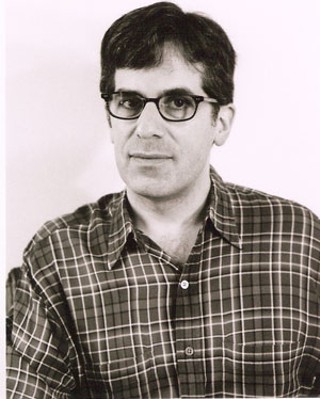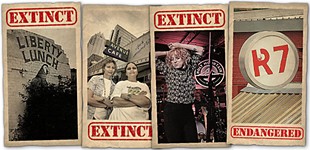Big Lit
Previewing the Texas Book Festival
Fri., Oct. 30, 2009

Bite the Big Apple: Jonathan Lethem's 'Chronic City'
"It all feels a little plotty to me," says former child actor and bon vivant Chase Insteadman at a sort of man-behind-the-curtain moment in Chronic City, Jonathan Lethem's appallingly dense Manhattan epic. It's a winking nod, one of many, at the novel's layers of invention – it's all parallel narratives and multiple meanings, exploited naivete and escaped giant tigers, conspiracies and astronauts and rampaging robots, a labyrinth of cultural arcana and self-reference, simulacra and virtual reality and all that post-post stuff – that both make its magnificence possible and stir its harshest critics. "I was trying to get at the way contemporary life can feel totally absurd, like a cartoon or simulation of some kind," explains Lethem on a cell phone from somewhere, amiably previewing his impending appearance at the Texas Book Festival, "and yet we're condemned to live in it and to taking it completely seriously. It has the power to break our hearts."
The title's "Chronic" alludes to not only what's become the most obvious association (Dre's not dead) but to the inexorable nature of New York's self-destruction and reinvention – a quality the Brooklyn-identified Lethem finds embodied in the Upper East Side. "It's the ultimate citadel of power and money," he says. "But the far side of it is sort of this grubby, really pedestrian place. What I wanted to get at is that this place could be so transformed by these projections of power and money and aspiration that it's become a kind of virtual reality, a kind of bubble city, but then underneath that there's always this undertow of normality, people just clinging to rent-controlled apartments and shopping for moldy apples at the Korean deli or whatever. The two coexist forever."
Of course, the role of the chronic shouldn't be understated, either. When the woebegone Chase (whose astronaut girlfriend, stranded in space, writes him impossibly sad letters that are published in The New York Times) attaches himself to a former critic/broadsheet artist and instant mentor Perkus Tooth – both swirling in the outer eddies of bygone cultural currency – the two embark on a reefer-mad tutorial, freewheeling through an impossible maze of sociopolitical connections and esoteric associations, the kind only designer weed can fuel. It could be said that these rambles form the book's core; it could also be said that their inclusion has made Chronic City vulnerable to being labeled a "stoner novel," though not always disparagingly.
For his part, Lethem is surprised at the focus on his inclusion of what is by now a formative part of most everyone's experience. "It's something people do," he says. "I still idealize that experience even if I don't think it should necessarily last for too many years. It was a way of shaking off the received condition of normality. It's also comic – and tragic – because it's so brief-lived, and it collapses into the hunger for hamburgers and the need for sleep. It sort of compresses the idea of questing to break from the ordinary and falling short into one chaotic evening."
Perkus' compulsive searching – his embodiment of the act of "following every cultural clue to its utmost point of relevance, to believing that it's significant to your own experience," as Lethem puts it – is, of course, a mirror of but ultimately antithetical to the search for authentic connection. It's clear that the search for emotional authenticity – and its dopplegänger, the kind of clever, learned, connect-the-dots theorizing that can serve to keep authenticity at bay – is crucial to Lethem's fun house of a tome. Alienation and return are Lethem's landscape, the spectrum he swings in, but he pretty much always lands on the side of complicated humanity.
"For me it's a question of being driven to the brink of the inexpressibility of what you feel you see about the world," he says. "For all he's able to enunciate what's wrong, Perkus suspects that he knows things that he can't make anyone else feel, no matter how hard he tries. That's when you become a kind of monster. Or self-destruct. Fortunately, it's not usually a terminal condition." – Cindy Widner
The World as It Isn't
With Robert Olen Butler, Jim Crace, David Eagleman, and Jonathan LethemSaturday, Oct. 31, 2:30-3:30pm, Senate Chamber








